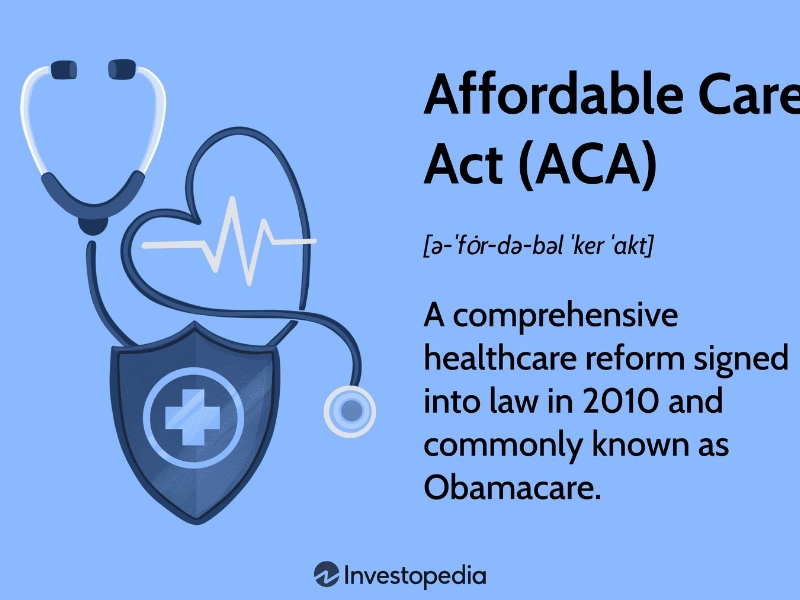Preventive care of the highest caliber lowers healthcare expenses while extending patients' lives and improving their health. Unfortunately, cost hurdles like copayments and deductibles keep a lot of families from receiving this essential care. Fortunately, most private health plans are now required by the ACA to provide cost-free preventive care. This covers treatments like routine immunizations and cancer screenings that have substantial scientific backing for their positive effects on health.
 Medical tests known as health screens are used to diagnose diseases, disorders, and illnesses in asymptomatic people before symptoms show up. They are conducted in a variety of locations, including sports arenas, hospitals, primary care clinics, doctor's offices, schools, and barbershops. They are crucial instruments for lowering morbidity and mortality.
Early detection and intervention lead to improved outcomes and lower costs, which is one of the benefits of health screenings. Additionally, screenings may raise awareness and motivate patients to adopt healthier lifestyle choices.
Nevertheless, using screening tests can lead to a number of problems. One is that they may induce anxiety, particularly if a test result suggests a person is more susceptible to a disease. As a result, people could seek out diagnostic procedures that put them at higher risk. Lead-time bias is the term for this, and it can be challenging to manage. Furthermore, medical staff members have the tendency to order a great deal of needless tests, which raises the entire expense of healthcare.
Medical tests known as health screens are used to diagnose diseases, disorders, and illnesses in asymptomatic people before symptoms show up. They are conducted in a variety of locations, including sports arenas, hospitals, primary care clinics, doctor's offices, schools, and barbershops. They are crucial instruments for lowering morbidity and mortality.
Early detection and intervention lead to improved outcomes and lower costs, which is one of the benefits of health screenings. Additionally, screenings may raise awareness and motivate patients to adopt healthier lifestyle choices.
Nevertheless, using screening tests can lead to a number of problems. One is that they may induce anxiety, particularly if a test result suggests a person is more susceptible to a disease. As a result, people could seek out diagnostic procedures that put them at higher risk. Lead-time bias is the term for this, and it can be challenging to manage. Furthermore, medical staff members have the tendency to order a great deal of needless tests, which raises the entire expense of healthcare.
 A health risk assessment (HRA) is a method used to determine a person's possible health hazards and to direct the creation of a customized preventive strategy. HRAs are frequently carried out by healthcare practitioners to support the creation of preventative care plans for patients or by employers for their staff as part of a wellness initiative.
Preventive services guard against illnesses, diseases, and health emergencies by identifying them before they worsen. However, cost hurdles like copayments and deductibles keep a lot of Americans from getting necessary preventative care.
Thankfully, cost-sharing for preventative care provided by in-network providers must be eliminated under the Affordable Care Act (ACA) for commercial health insurance plans. This covers items like immunizations and screening exams. Should the appointment be primarily for a medical examination or office visit, the patient will be billed. The price of a mammogram or other cancer screening is not included in this. Furthermore, certain preventative interventions cannot be denied to patients based on their gender identity or sex at birth because they are advised for certain populations.
A health risk assessment (HRA) is a method used to determine a person's possible health hazards and to direct the creation of a customized preventive strategy. HRAs are frequently carried out by healthcare practitioners to support the creation of preventative care plans for patients or by employers for their staff as part of a wellness initiative.
Preventive services guard against illnesses, diseases, and health emergencies by identifying them before they worsen. However, cost hurdles like copayments and deductibles keep a lot of Americans from getting necessary preventative care.
Thankfully, cost-sharing for preventative care provided by in-network providers must be eliminated under the Affordable Care Act (ACA) for commercial health insurance plans. This covers items like immunizations and screening exams. Should the appointment be primarily for a medical examination or office visit, the patient will be billed. The price of a mammogram or other cancer screening is not included in this. Furthermore, certain preventative interventions cannot be denied to patients based on their gender identity or sex at birth because they are advised for certain populations.
 Immunizations shield against illnesses that can seriously harm one's health. By making it more difficult for germs to spread from person to person when a population is immunized, they also contribute to maintaining community health. Herd immunity is the term for this.
A disease's treatment can be highly costly. For instance, a flu infection results in millions of doctor visits, missed work or school days, and an average of one month's worth of missed productivity due to hepatitis A. At the federal, state, and municipal levels, vaccinations can aid in lowering the expenses related to these diseases and outbreak responses.
According to the Affordable Care Act, vaccinations are classified as preventative services (ACA). There is no deduction or charge for them. However, agreements reached between vaccine producers and plan sponsors, or PBMs, determine the costs that private insurance covers for vaccinations. Prices are determined by deducting the vaccine's list price from any drug company rebates. The net cost of the vaccination is reduced to a plan or PBM by these rebates and reductions.
Immunizations shield against illnesses that can seriously harm one's health. By making it more difficult for germs to spread from person to person when a population is immunized, they also contribute to maintaining community health. Herd immunity is the term for this.
A disease's treatment can be highly costly. For instance, a flu infection results in millions of doctor visits, missed work or school days, and an average of one month's worth of missed productivity due to hepatitis A. At the federal, state, and municipal levels, vaccinations can aid in lowering the expenses related to these diseases and outbreak responses.
According to the Affordable Care Act, vaccinations are classified as preventative services (ACA). There is no deduction or charge for them. However, agreements reached between vaccine producers and plan sponsors, or PBMs, determine the costs that private insurance covers for vaccinations. Prices are determined by deducting the vaccine's list price from any drug company rebates. The net cost of the vaccination is reduced to a plan or PBM by these rebates and reductions.
 Having a long-term relationship with your healthcare provider will enable you to obtain routine medical care, see possible issues before they get worse, and seek preventative care to stay healthy. Annual physicals and specific screenings are two examples of these services.
According to the Affordable Care Act (ACA), the majority of health plans must provide full coverage of adult preventive treatments without requiring cost-sharing. These include the Advisory Committee on Immunization Practices' and the U.S. Preventive Services Task Force's evidence-based recommendations. These guidelines include, among other things, flu vaccines, the shingles vaccine, and routine cancer screenings for colorectal and breast cancer.
A series of routine blood tests for diabetes, blood pressure, and cholesterol are also part of these requirements. These tests can aid in the early detection of problems like obesity, high blood sugar, and high cholesterol, which are frequently easier to treat when discovered in their early stages. Preventive treatment does not, however, include visits to specialists for a particular issue or alternative medications.
Having a long-term relationship with your healthcare provider will enable you to obtain routine medical care, see possible issues before they get worse, and seek preventative care to stay healthy. Annual physicals and specific screenings are two examples of these services.
According to the Affordable Care Act (ACA), the majority of health plans must provide full coverage of adult preventive treatments without requiring cost-sharing. These include the Advisory Committee on Immunization Practices' and the U.S. Preventive Services Task Force's evidence-based recommendations. These guidelines include, among other things, flu vaccines, the shingles vaccine, and routine cancer screenings for colorectal and breast cancer.
A series of routine blood tests for diabetes, blood pressure, and cholesterol are also part of these requirements. These tests can aid in the early detection of problems like obesity, high blood sugar, and high cholesterol, which are frequently easier to treat when discovered in their early stages. Preventive treatment does not, however, include visits to specialists for a particular issue or alternative medications.